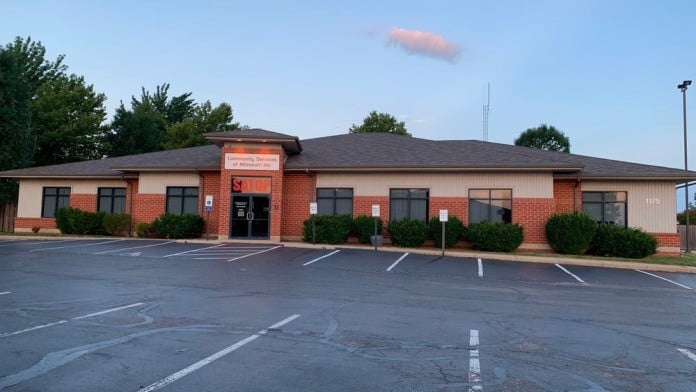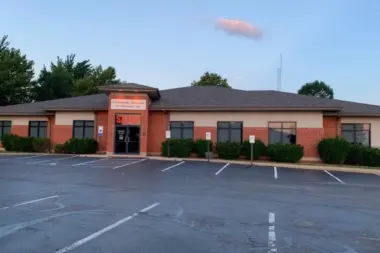I like this place, and the staff is friendly I just think that the treatments arent's as effective as they should be.
About Community Services of Missouri
Community Services of Missouri, located in Saint Peters, Missouri, provides a broad range of classes to Missouri residents who need to satisfy legal requirements after receiving substance use related infractions. What strikes us most about them are all the ways they work to make their services as easily accessible as possible.
Their classes are available online which is a convenient way to take care of your tasks without having to leave home. Most courts will allow online learning but you’re encouraged to ask the court before enrolling.
Positive Remarks from Clients
People who’ve used these programs frequently note the ease of scheduling and payment process. Clients have testified to the non-judgement demeanor of the instructors. We like the comments that speak to the straightforward approach of the material to help you pass the classes easily.
Get Your License Back with SATOP
Substance Awareness Traffic Offenders Program (SATOP) can provide you with required treatments if you’re facing a DWI. With SATOP, you’ll receive a screening to determine which services you need. You’ll then receive necessary hours of education to satisfy the courts so you can get your driver’s license back.
Probation Supervision to Avoid Incarceration
You can receive supervision and a substance evaluation to start the process needed to avoid incarceration or further fines. Supervised probation addresses your problem areas. This service also assists you in making sure you’re connected with places to host your community service hours.
License Reinstatement for Adolescents
A.D.E.P. (Adolescent Diversion Education Program) is an approved program that can help your adolescent get their license back. The duration is at least ten hours. If your adolescent is under age 21 and has plead guilty after being arrested for possession of alcohol, A.D.E.P. may be a good program to consider.
Avoid Extra Penalties with R.E.A.C.T.
Required Educational Assessment and Community Treatment Program (R.E.A.C.T) is another useful intervention for youth under the age of 21. If your child has plead guilty after being arrested for possession of drugs, this 10 hour program can help. This is important to avoid extra penalties.
Latest Reviews
Rehab Score
Gallery


Other Forms of Payment
Self-pay involves paying for treatment out of your own pocket. You can use savings or credit, get a personal loan, or receive help from family and friends to fund your treatment. If you don't have insurance or your insurance plan doesn't cover a specific program, self-pay can help ensure you still get the care you need.
Addiction Treatments
Levels of Care
Outpatient Programs (OP) are for those seeking mental rehab or drug rehab, but who also stay at home every night. The main difference between outpatient treatment (OP) and intensive outpatient treatment (IOP) lies in the amount of hours the patient spends at the facility. Most of the time an outpatient program is designed for someone who has completed an inpatient stay and is looking to continue their growth in recovery. Outpatient is not meant to be the starting point, it is commonly referred to as aftercare.
Completing a drug or alcohol rehab program shouldn't spell the end of substance abuse treatment. Aftercare involves making a sustainable plan for recovery, including ongoing support. This can include sober living arrangements like halfway houses, career counseling, and setting a patient up with community programs like Alcoholics Anonymous (AA) or Narcotics Anonymous (NA).
Intensive Outpatient Programs (IOP) are for those who want or need a very structured treatment program but who also wish to live at home and continue with certain responsibilities (such as work or school). IOP substance abuse treatment programs vary in duration and intensity, and certain outpatient rehab centers will offer individualized treatment programs.
Treatments
The goal of treatment for alcoholism is abstinence. Those with poor social support, poor motivation, or psychiatric disorders tend to relapse within a few years of treatment. For these people, success is measured by longer periods of abstinence, reduced use of alcohol, better health, and improved social functioning. Recovery and Maintenance are usually based on 12 step programs and AA meetings.
Drug rehab in Missouri usually involves several phases: detox, rehab, and aftercare. The rehab phase may include a combination of inpatient and outpatient treatments, as the individual moves through a continuum of care on their recovery journey.
A combined mental health and substance abuse rehab has the staff and resources available to handle individuals with both mental health and substance abuse issues. It can be challenging to determine where a specific symptom stems from (a mental health issue or an issue related to substance abuse), so mental health and substance abuse professionals are helpful in detangling symptoms and keeping treatment on track.
Opioid rehabs specialize in supporting those recovering from opioid addiction. They treat those suffering from addiction to illegal opioids like heroin, as well as prescription drugs like oxycodone. These centers typically combine both physical as well as mental and emotional support to help stop addiction. Physical support often includes medical detox and subsequent medical support (including medication), and mental support includes in-depth therapy to address the underlying causes of addiction.
Programs
Adult rehab programs include therapies tailored to each client's specific needs, goals, and recovery progress. They are tailored to the specific challenges adult clients may face, including family and work pressures and commitments. From inpatient and residential treatment to various levels of outpatient services, there are many options available. Some facilities also help adults work through co-occurring conditions, like anxiety, that can accompany addiction.
Clinical Services
Research clearly demonstrates that recovery is far more successful and sustainable when loved ones like family members participate in rehab and substance abuse treatment. Genetic factors may be at play when it comes to drug and alcohol addiction, as well as mental health issues. Family dynamics often play a critical role in addiction triggers, and if properly educated, family members can be a strong source of support when it comes to rehabilitation.
Group therapy is any therapeutic work that happens in a group (not one-on-one). There are a number of different group therapy modalities, including support groups, experiential therapy, psycho-education, and more. Group therapy involves treatment as well as processing interaction between group members.
In individual therapy, a patient meets one-on-one with a trained psychologist or counselor. Therapy is a pivotal part of effective substance abuse treatment, as it often covers root causes of addiction, including challenges faced by the patient in their social, family, and work/school life.
Contact Information
1175 Cave Springs Estate Drive
Saint Peters, MO 63376